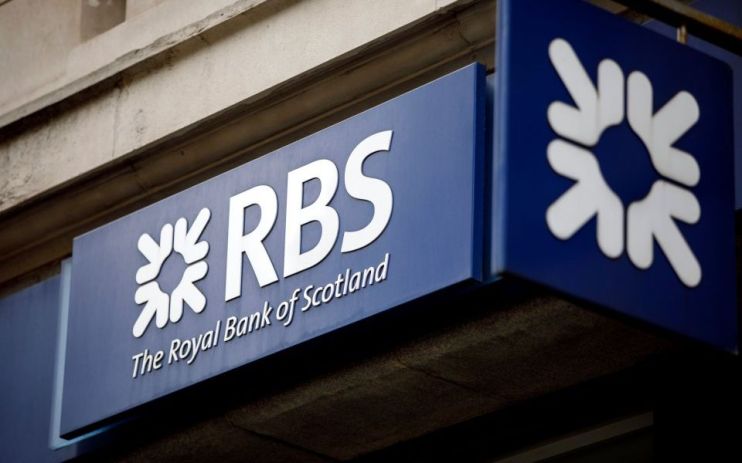FCA slammed over ‘whitewash’ RBS GRG report

The City watchdog has said it has found no evidence that senior bankers within RBS’ controversial turnaround unit GRG lacked honesty or integrity, despite accusations that it ruined thousands of businesses and livelihoods.
The Financial Conduct Authority (FCA) has today published its highly anticipated report into why it was unable to take enforcement action against senior individuals within the GRG, which has been accused of stripping its customers’ assets to shore up its own balance sheet at the time of the financial crisis.
Read more: RBS GRG scandal:The baggage that could drag down Andrew Bailey’s quest to lead the Bank of England
The FCA said that while it found “instances of inappropriate customer treatment within GRG”, the “absence of regulatory rules” meant it could not hold RBS to account for their misconduct.
“We found no evidence that any member of senior management was dishonest or lacking in integrity. In particular, we have not found a credible basis to conclude that senior management sought to treat customers unfairly or behaved in any other way that could call their honesty or integrity into question.
“We also considered the competence and capability of senior management. While we and the independent review found instances of inappropriate customer treatment within GRG, the absence of regulatory rules against which the performance of senior management within GRG could be measured, in the context of the environment at the time and in all the circumstances, means we do not think a competence and capability case with reasonable prospects of success could be brought.
“Individuals must be held to account where their behaviour falls below the applicable standards, but to do that, the standards need to be sufficiently clear at the time.”
The publication of the report had become a pressing issue in the wake of allegations that an arm of the Treasury, the Asset Protection Agency (APA), directed the actions of the GRG through the Asset Protection Scheme (APS), which insured RBS’ toxic loans during the financial crisis.
Read more: Government agency set bonus targets for RBS GRG bankers
The allegations came to light in a court case between RBS and Manchester-based businessman Oliver Morley, who has accused the bank of placing his business under “economic duress” when it acquired some of its assets in 2010. RBS has said the claim is without merit.
The FCA acknowledges the APS influence on bankers within the GRG, quoting staff members as saying compliance with its rules “contributed to pressures on staff through the period that RBS was in the APS due to the scale of requirements from the APS, and the need to train the entire business”.
A spokesperson for Morley said the report was a “wasted opportunity of near criminal proportions”.
“No senior RBS manager is named in the report much less held to account. A pinprick of light emerges where the FCA deals with the evidence that has come to light in my case against RBS – that HM Treasury and its Asset Protection Scheme was responsible for much of the wrongdoing at GRG.
“But as soon as the light emerges it is extinguished by the FCA’s failure to properly investigate these matters. Did they speak to anyone connected with the APS? The answer must be no –and this is despite FCA’s own chairman, Charles Randell, playing a key role in setting the APS up.”
Kevin Hollinrake MP, co-chair of the APPG on fair business banking, said: “This report is another complete whitewash and another demonstrable failure of the regulator to perform its role.
“The FCA must publish a full account of its findings including naming those responsible for the shameful mistreatment of thousands of UK SMEs.”
“Phase two of the FCA’s own final requirement notice was supposed to ‘consider the root causes’ and establish whether ‘the causes of such treatment were known about, authorised by and/or sanctioned by management within RBS Group’. They have manifestly failed to do this.
“In its statement last year of 28th July 2018, the FCA concluded that its ‘powers to discipline for misconduct do not apply’. It could find ‘no evidence of dishonesty, lack of integrity’ any ‘absence of competence or capability’, anyone acting ‘recklessly or with a dodgy ‘ethical compass’ and did not ‘make findings about misconduct’ amongst the senior management team. How then did the UK’s biggest ever banking scandal take place?
Read more: Sir Vince Cable calls for probe into Treasury role in RBS’ GRG unit
RBS chairman Howard Davies welcomed the report.
“The FCA has once again confirmed that no evidence was found to support allegations that RBS artificially distressed and transferred otherwise viable businesses to GRG or deliberately made them worse off to profit from their sale, restructuring or insolvency. It also found no evidence that any member of GRG’s senior management sought to treat customers unfairly or behaved in any other way that could call their honesty and integrity into question.
“The way the bank deals with business customers in financial difficulty today is fundamentally different to the aftermath of the financial crisis, during what was a hugely challenging time for the bank, its customers and the wider economy. We are committed to ensuring that past mistakes cannot be repeated.”